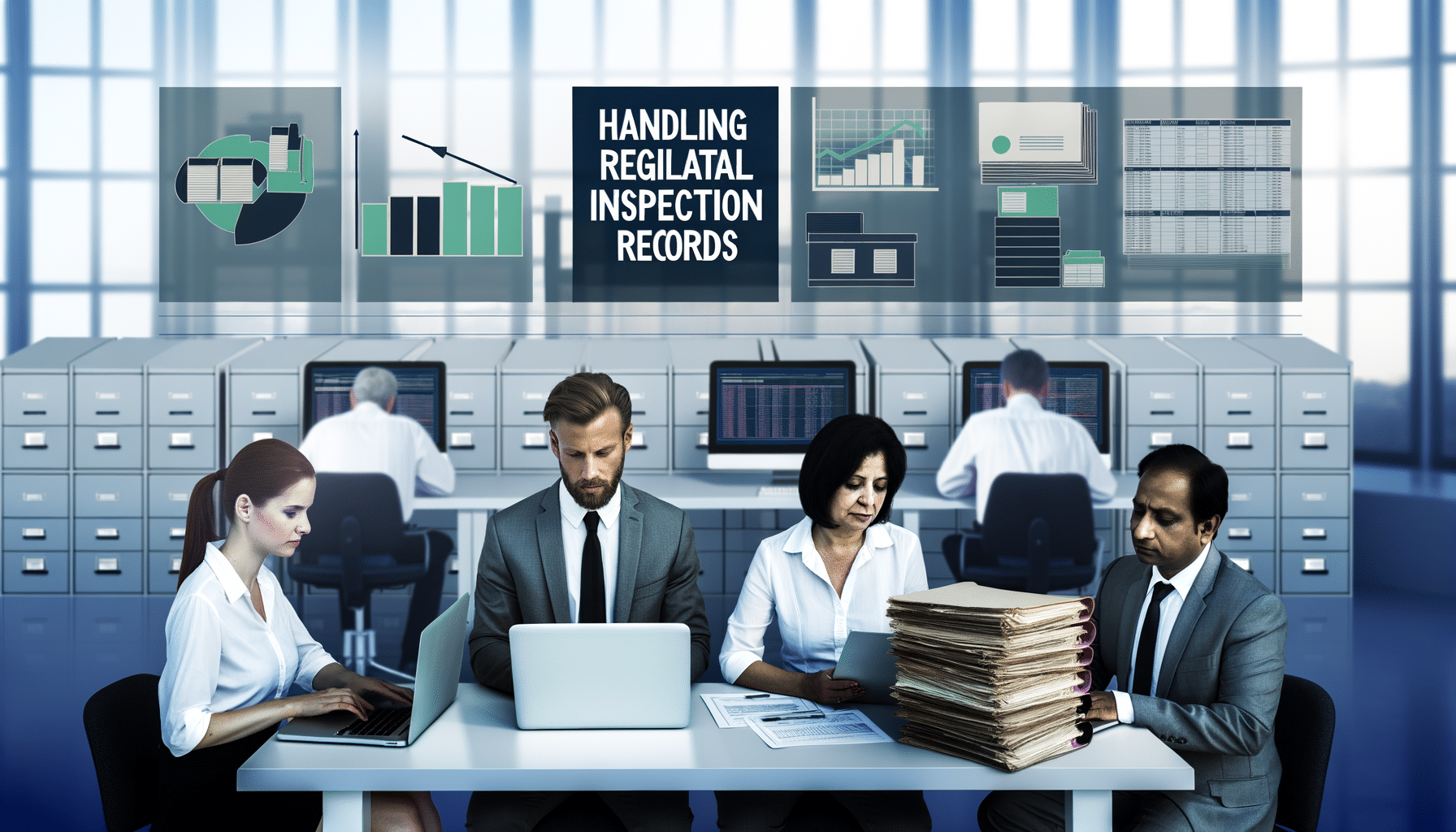- Blockchain Compliance
- November 16, 2024
Automating Policy Updates with AI in Record Systems

Embracing AI for Seamless Policy Management in Record Systems
In our rapidly evolving digital landscape, managing records isn’t just about ensuring data is stored properly—it’s about staying compliant with an ever-growing list of regulations and standards. As a founder deeply entrenched in transforming record management, I’ve seen firsthand the incredible role AI can play in reshaping this space. Join me as I explore the transformative potential of automating policy updates within record systems using AI.
The Challenge of Manual Policy Management
For anyone who’s ever been at the helm of compliance, the burden of keeping up with policy updates is no stranger. Organizations frequently grapple with the complexities of managing voluminous documentation and understanding the nuances of compliance standards like GDPR, HIPAA, and SOX. The manual approach is not only time-consuming but is prone to errors, missed deadlines, and resultant penalties. This is where AI steps in as a game-changer.
How AI Brings Automation to Policy Updates
AI’s primary role in policy management lies in its ability to automate the tedious tasks that consume significant resources. Here’s how AI achieves this:
- Real-time Monitoring: AI algorithms can continuously scan regulatory databases and news updates, alerting organizations to any modifications in policy requirements as they happen.
- Automated Alerts: Once a change is detected, AI systems can trigger alerts, ensuring that stakeholders remain informed without sifting through heaps of data themselves.
- Instant Categorization and Tagging: AI tools can automatically classify new policy requirements, tagging them in the organizational system for easy retrieval and future reference.
This proactive approach not only increases efficiency but significantly reduces the risk of non-compliance.
Integrating AI into Record Systems: A Strategic Advantage
From my perspective at RecordsKeeper.AI, integrating AI with record systems is no longer a luxury—it’s a strategic advantage. By embedding AI-driven policy management solutions, organizations can ensure:
- Seamless Compliance: AI’s capacity to adapt to changing regulations means that compliance isn’t just reactive; it’s continual and proactive.
- Cost-Effectiveness: Reducing manual intervention minimizes errors and the associated costs of resolving them, translating to substantial long-term savings.
- Effortless Scalability: As organizations grow, so does the complexity of compliance. AI can scale effortlessly to handle increasing regulatory demands across diverse jurisdictions.
A Practical Application in Blockchain Technology
Blockchain technology, with its promise of immutable and transparent record-keeping, complements AI-driven policy management seamlessly. At RecordsKeeper.AI, we leverage blockchain’s decentralized nature to enhance trustworthiness and data integrity. This combination ensures that not only are policies updated automatically, but records remain untampered—a crucial requirement for industries like finance and healthcare.
What the Future Holds
I believe the future of compliance is exciting, as AI continues to evolve and integrate with record systems. We are stepping towards a future where regulatory compliance could be managed with minimal human intervention, freeing up in-house legal and compliance heads to focus on strategic tasks.
Actions Organizations Can Take Today
For those responsible for ensuring compliance within their organizations, it’s crucial to start exploring these technologies now. Implementing AI-driven systems might seem daunting, but beginning with small pilot projects can yield substantial insights. Here’s a streamlined approach to get started:
- Conduct a Needs Assessment: Understand the specific compliance needs and identify areas that will benefit most from automation.
- Explore Technology Partners: Work with solution providers like RecordsKeeper.AI who offer comprehensive AI integration to understand how these solutions can be customized to your needs.
- Implement Pilot Projects: Start small to test the waters, evaluate outcomes, and scale gradually based on the successes observed.
In summary, the potential of AI to transform policy management in record systems is immense. By embracing this powerful technology, organizations not only ensure compliance but position themselves as industry leaders in efficiency and innovation. Let’s continue to push the boundaries, automate wisely, and realise the full advantages AI has to offer in our journey towards streamlined compliance.
For more insights into how AI and blockchain are rewriting the rules of record management, join me as we explore these exciting advancements. Follow me closely to stay ahead of the curve and transform these challenges into opportunities for growth!
Toshendra Sharma is the visionary founder and CEO of RecordsKeeper.AI, spearheading the fusion of AI and blockchain to redefine enterprise record management. With a groundbreaking approach to solving complex business challenges, Toshendra combines deep expertise in blockchain and artificial intelligence with an acute understanding of enterprise compliance and security needs.
Related Posts


Handling Regulatory Inspection Records
Managing documentation for regulatory compliance.
- January 3, 2025
Archives
- January 2025
- December 2024
- November 2024
- October 2024
- September 2024
- August 2024
- July 2024
- June 2024
- May 2024
- April 2024
- March 2024
- February 2024
- January 2024
- December 2023
- November 2023
- October 2023
- September 2023
- August 2023
- July 2023
- June 2023
- May 2023
- April 2023
- March 2023
- February 2023
- January 2023
- December 2022
- November 2022
- October 2022
- September 2022
Want to get more content like this?
Signup to directly get this type of content to your inbox!!
Latest Post
Document Control for Equipment Maintenance
- January 20, 2025
Managing Records for Multiple Clients
- January 19, 2025
Handling Conference Documentation
- January 18, 2025
Setting Up Department Record Reviews
- January 17, 2025





